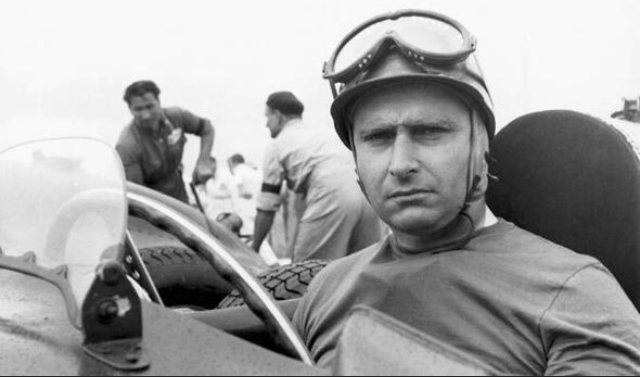In Bill Brewster’s (on Twitter @BillBrewsterSCG) interview with Adam Robinson (on Twitter @IAmAdamRobinson), Robinson distinguishes between two types of games. These are
- Games that you should play to win and
- Games that you should play not to lose
Initially, I thought the distinction was one of a closed ended game (this is my term as I know nothing about game theory) with a clear beginning and an end (race car driving) vs. what I consider a continuous game (investing), but I was wrong. In fact, I’d now argue that racing cars and investing are both continuous games. The difference between the two is in how we keep score. It’s the scorekeeping that determines whether we are in a game that we should play to win or in one in which we should play not to lose.

In race car driving you want to win, but the stakes are extraordinarily high. Robinson quotes Juan Manuel Fangio “To finish first you must first finish.” I think I read this quote years ago in a Buffett letter and at the time thought that it meant, “hey don’t be so reckless as to die while racing.” But on reflection, I think it is literally just about winning the race. I was overlaying my personality on this quote (and maybe Buffett was too) because I would be terrified of racing a car. Elite performers have shown a willingness to risk their lives again and again. While racing Fangio broke his neck in 1952, a full six years before he retired.
I believe Fangio was getting at the fact that a professional race car driver can adjust the risks he or she takes over the course of a race with an eye towards winning, or if impossible, with an eye towards qualifying for the next race.
Robinson added that Mario Andretti’s father advised him to try to win each race “as slow as possible.” But did Andretti listen? Andretti famously said, “(i)f everything seems under control, you’re just not going fast enough.” His crashes in 1988 and 2003 are on Youtube. He was in first place in both races leading up to these crashes.
Andretti’s father’s advice starts to feel a bit like a parent begging her child, as he marches off to war, to “not be a hero.” Races at the highest level are too competitive to win as slowly as possible and a parent’s words often go unheeded.
Robinson contrasts racing, with games where you don’t want to lose, such as investing. In investing if you lose some of your capital, it sets you back in a major way. If I go from having $1M of capital, and I lose 25% of it, I need to make 33% in order to have $1M of capital again. But racing cars is path-dependent as well. If I perform poorly in a race (or on the PGA tour, spring training, etc.) it may impact my ability to qualify for the next race (tournament, season, etc) and set me back months, years, or permanently in my career.
So what is the difference between racing and investing? It’s not just the risk to life and limb, it’s that you keep score differently in investing vs. racecar driving. Both are path-dependent. But in investing, the clock keeps running until you retire, die, or blow up. As in most games, your performance as a racecar driver in one race might impact whether you qualify for future races. But when you stop racing, it is your record of victories, not losses that will determine your track record.
In investing, it’s not your record of wins that matters. It doesn’t matter if you are up 10x over a decade if you blow up and disappear in two weeks. In investing it is your cumulative return over many years and how safely you achieve this return that matters. Therein lies the good news for investors.
We don’t have to race.
We can take our time.
We can focus on not losing.

Recent Comments